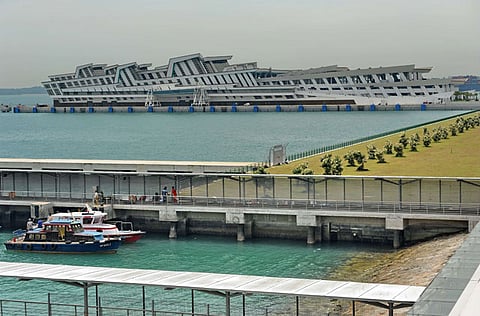Singapore tops World Bank’s Doing Business chart
Good progress made in improving business regulatory practices globally, says report

Dubai: Local entrepreneurs in developing countries are finding it easier to do business now than at any time in the last 10 years, highlighting the significant progress that has been made in improving business regulatory practices across the globe, according to a new report released by the World Bank and International Finance Corporation (IFC).
The report, Doing Business 2013: Smarter Regulations for Small and Medium-Size Enterprises, marks the 10th edition of the Doing Business series. Over the past decade, these reports have recorded nearly 2,000 regulatory reforms implemented by 180 economies.
Singapore topped the global ranking on the ease of doing business for the seventh consecutive year. Hong Kong SAR, China, New Zealand, the United States, Denmark, Norway, the United Kingdom, the Republic of Korea, Georgia and Australia joined the list of the top 10 economies with the most business-friendly regulations.
The reforms have yielded major benefits for local entrepreneurs across the globe, it says. For example: Since 2005, the average time to start a business has fallen from 50 days to 30, and in low-income economies, the average has been reduced by half.
“In the past eight years, the average time to transfer property fell by 35 days, from 90 to 55, and the average cost by 1.2 percentage points — from 7.1 per cent of the property value to 5.9 per cent,” it says.
Tax compliance simplified
“In the past eight years, improvements to simplify tax compliance have reduced the time required annually to comply with the three major taxes measured [profit, labour and consumption taxes] by 54 hours on average.”
In the past year alone, 108 economies implemented 201 regulatory reforms that made it easier for local entrepreneurs to do business, the report found. Eastern Europe and Central Asia had the largest share of economies implementing regulatory reforms — with 88 per cent reforming in at least one of the areas measured by Doing Business.
European economies in fiscal distress are working to improve business regulation as part of an effort to establish a stronger foundation for long-term growth, the report found.
“Over the years, governments have made important strides to improve their business regulatory environment and to narrow the gap with global best practices,” Augusto Lopez-Claros, director, Global Indicators and Analysis, World Bank Group, said.
“While the reforms we measure provide only a partial picture of an economy’s business climate, they are crucial for key economic outcomes such as faster job growth and new business creation.”
Biggest improvements
Topping the list of economies that registered the biggest improvements in the ease of doing business over the last year were Poland, Sri Lanka, Ukraine, Uzbekistan, Burundi, Costa Rica, Mongolia, Greece, Serbia and Kazakhstan.
“Our research shows it is possible to make huge strides in addressing critical challenges, even without resolution of the many ideological and policy dilemmas. From government spending to tax collection, education improvement to health outcomes and welfare reform to job creation, we see the potential for meaningful improvement, to do more and better with less,” Diana Farrell, director at McKinsey’s and co-founder of the McKinsey Center for Government.
“What is needed is government management by design, built to fit these difficult times: government that identifies the most critical, solvable problems, reorganises where necessary to deliver the right solutions, and abandons the tools and approaches that no longer work.”
Sign up for the Daily Briefing
Get the latest news and updates straight to your inbox


